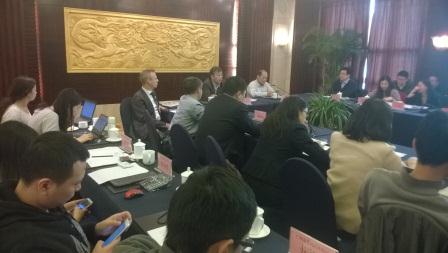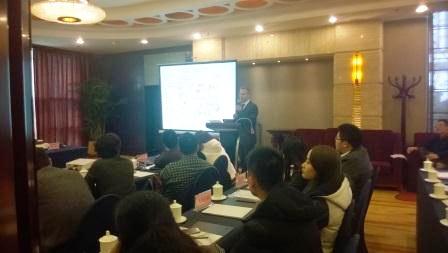Workshop on Public Participation in Environmentally Sensitive Projects
chinagate.cn, August 25, 2015 Adjust font size:
On 11th February 2015, a seminar on the theme of Public Participation in Environmentally Sensitive Projects was co-hosted by the MEP Environmental Education and Communications Center(CEEC) and the EU-China Environmental Governance Programme (EGP) in Chongqing. Supported by the Chongqing Environmental Protection Bureau(EPB), the seminar reviewed the development of “waste-to-energy” plant in Chongqing to analyze the development of waste incineration in China. Representatives from environmental protection organizations and waste incineration industries at the meeting shared and exchanged their perspectives in public participation in waste incineration projects.
As Mr. Yuan Qingdan, deputy director-general of Policy Research Center for Economics and Environment, MEP also the director of EGP commented, public’s opposition against the waste incineration plants originated from their concerns about the toxic emissions such as dioxin produced by these plants. Therefore to solve the problem, it is also important to have public involved in the process of decision despite pursuing technical improvement in waste incineration. International experiences show that competent authorities have to answer public’s doubts with transparency and validity of the data in the long run.
Mr. Zhang Yong, director-general of Chongqing EPB followed to introduce the “Five Action Plan” in Chongqing’s environmental protection. Chongqing has built the first BOT “waste-to-energy” plant in china. After importing and absorbing advanced foreign technics, the plant now is completely “made-in-china”. It has been running without exceedance of target values in its effluent quality in operation and emission to the air since 2002.
Mr. Dimitri de Boer, Team Leader of the EGP also introduced the role and the importance of public participation in environmentally sensitive projects in EU.
Mr. Jia Feng concluded at the end of the meeting: The reduction of environmental sensitivity of these projects is more than a mere environmental problem. It is also a social issue. Information disclosure in the process of environmental impact assessment only is far from enough. We have to involve the public in a broader range and from early stages, from proposal of the project, location of the project, to planning of the project and to the monitoring of the project. Every department has to allow public access to information and participation from land planning department to development and reform departments and to environmental protection authorities. It may seem to have increased the cost of project planning at the very beginning, but at the end of the day, one would realize that public participation and information disclosure is the most efficient way.



